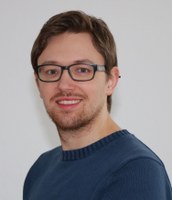Speakers 2021
|
|
Prof. Patrick Henning (Ruhr University Bochum) |
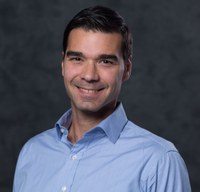 |
Prof. Petros Drineas (Purdue University) Petros Drineas is a Professor and Associate Head at the Computer Science Department of Purdue University. He earned a PhD in Computer Science from Yale University in 2003 and a BS in Computer Engineering and Informatics from the University of Patras, Greece, in 1997. From 2003 until 2016, Prof. Drineas was an Assistant (until 2009) and then an Associate Professor at Rensselaer Polytechnic Institute. His research interests lie in the design and analysis of randomized algorithms for linear algebraic problems, as well as their applications to the analysis of modern, massive datasets, with a particular emphasis on the analysis of genetics data. Prof. Drineas is the recipient of an Outstanding Early Research Award from Rensselaer Polytechnic Institute as well as an NSF CAREER award. He was a Visiting Professor at the US Sandia National Laboratories during the fall of 2005, a Visiting Fellow at the Institute for Pure and Applied Mathematics at the University of California, Los Angeles in the fall of 2007, a long-term visitor at the Simons Institute for the Theory of Computing at the University of California Berkeley in the fall of 2013, and has also worked for industrial labs (e.g., Yahoo Labs and Microsoft Research). From October 2010 to December 2011, he served the US National Science Foundation as a Program Director in the Information and Intelligent Systems (IIS) Division and the Computing and Communication Foundations (CCF) Division. Prof. Drineas has published over 140 papers (cited over 10,000 times) in theoretical computer science, applied mathematics, and genetics venues, including the Proceedings of the National Academy of Sciences, PLOS Genetics, Genome Research, the Journal of Medical Genetics, PLoS One, the Annals of Human Genetics, etc. |
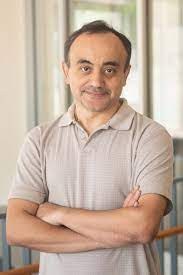 |
Prof. Yalchin Efendiev (Texas A&M University)
Yalchin Efendiev is a Professor of Mathematics at Texas A&M University and the Director of Institute for Scientific Computation. He holds Mobil Chair in Computational Sciences. He got his Ph.D. from Caltech in 1999 and B.S. from Moscow State University in 1993. He was named a Fellow of AMS in 2017 and a Fellow of SIAM in 2020. He was an invited speaker in 2014 ICM and won Fraunhofer Bessel Award in 2010. His research interests are in multiscale computations, upscaling, multiphysics modeling, and related areas. |
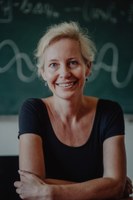 |
Prof. Barbara Kaltenbacher (Universität Klagenfurt) The main emphasis of BK's research lies in Inverse Problems and their regularization, where she has co-authored two monographs and contributed more than ninety journal papers. As this also involves modeling, analysis and numerics of the corresponding forward problems, she got involved in several application related topics such as piezoelectricty, hysteresis in magnetics and ferroelectrics, as well as nonlinear acoustics, where the latter has recently become another focus of my research with a monograph co-authorship and more than twenty journal papers so far.
Her main achievements in regularization theory are on iterative regularization of nonlinear problems in Hilbert and also in general Banach spaces, as well as their efficient and stable implementation using and further developing modern techniques from numerics of PDEs and optimization. Concerning nonlinear acoustics, she has contributed to the analysis of classical and also advanced models. This research has been supported by the Austrian and the German Science Foundations, as well as by industrial partners in a number of projects, that among others provided funding for the twelve PhD students whom she had the pleasure to supervise so far. |
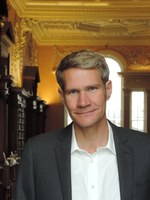 |
Prof. Per-Gunnar Martinsson (University of Texas) Gunnar Martinsson is a Professor of Mathematics at the University of Texas at Austin, where he also holds the W.A. "Tex" Moncrief, Jr. Chair in Simulation-Based Engineering and Sciences in the Oden Institute for Computational Engineering and Sciences. Prior to joining UT Austin, Martinsson served as a Professor of Mathematics at the University of Oxford, and he has previously held faculty positions at the University of Colorado at Boulder and at Yale University. He earned his Ph.D. in computational and applied mathematics in 2002 from UT Austin. He received an M.Sc. degree in Engineering Physics in 1996 and a "Licentiate" degree in Mathematics in 1998, both from the Chalmers University of Technology in Sweden. Martinsson was the recipient of the SIAM 2017 Germund Dahlquist Prize, and was named a Fellow of SIAM in 2021. |
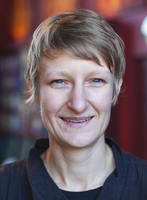 |
Prof. Carola Schönlieb (University of Cambridge) Carola-Bibiane Schönlieb is Professor of Applied Mathematics at the Department of Applied Mathematics and Theoretical Physics (DAMTP), University of Cambridge. There, she is head of the Cambridge Image Analysis group, Director of the Cantab Capital Institute for Mathematics of Information, Chair of the Centre for Data Driven Discovery and co-Director of the EPSRC Centre for Mathematics of Information in Healthcare. Since 2011 she is a fellow of Jesus College Cambridge and since 2016 a fellow of the Alan Turing Institute, London. She also currently holds the Chair of the SIAM Activity Group on Imaging Sciences and the Chair of the Committee for Applications and Interdisciplinary Relations (CAIR) of the EMS. Her current research interests focus on variational methods, partial differential equations and machine learning for image analysis, image processing and inverse imaging problems. She has active interdisciplinary collaborations with clinicians, biologists and physicists on biomedical imaging topics, chemical engineers and plant scientists on image sensing, as well as collaborations with artists and art conservators on digital art restoration. Her research has been acknowledged by scientific prizes, among them the LMS Whitehead Prize 2016, the Philip Leverhulme Prize in 2017, the Calderon Prize 2019, and a Royal Society Wolfson fellowship in 2020, and by invitations to give plenary lectures at several renowned applied mathematics conferences, among them the SIAM conference on Imaging Science in 2014, the SIAM conference on Partial Differential Equations in 2015, the SIAM annual meeting in 2017, the Applied Inverse Problems Conference in 2019, the FOCM 2020 and the GAMM 2021. Carola graduated from the Institute for Mathematics, University of Salzburg (Austria) in 2004. From 2004 to 2005 she held a teaching position in Salzburg. She received her PhD degree from the University of Cambridge (UK) in 2009. After one year of postdoctoral activity at the University of Göttingen (Germany), she became a Lecturer at Cambridge in 2010, promoted to Reader in 2015 and promoted to Professor in 2018. |

